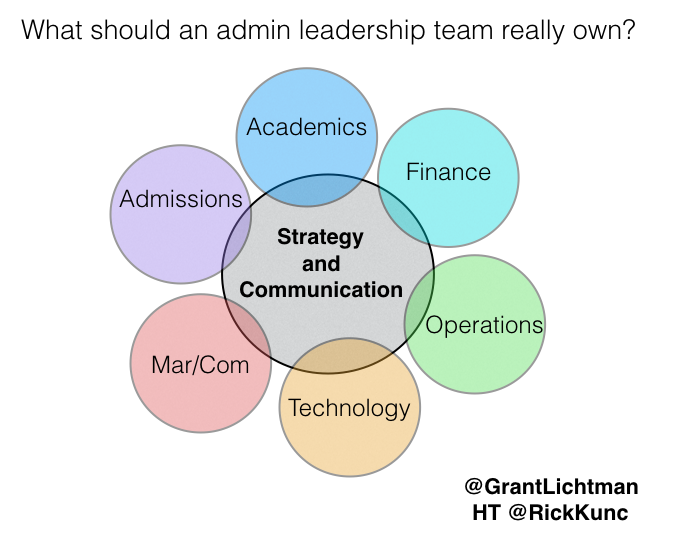As you start the new school year, here is another thought that should creep into the school’s organizational consciousness and bug the heck out of you:
 Are we measuring what we really value in our students? Most teachers spend an enormous amount of time calculating a grade that they believe represents something, or at least that is defensible to the anxious student or the angry parent. And yet we know for a fact that those letter grades are virtually meaningless, that they are almost useless in terms of describing how well a student has learned, let alone exhibits, the traits we say we value. In Are You Smart Enough, UCLA professor Alexander Astin cites studies that prove that over the last 45 years, “the number of college freshmen reporting high school grade averages of ‘A’ has tripled, from 18% to 53%.” In other words, ‘A’ has somehow become the average grade for high school students, while a single ‘C’ will doom a student from being accepted at most prestigious colleges. Grades have become a valid measure of almost nothing.
Are we measuring what we really value in our students? Most teachers spend an enormous amount of time calculating a grade that they believe represents something, or at least that is defensible to the anxious student or the angry parent. And yet we know for a fact that those letter grades are virtually meaningless, that they are almost useless in terms of describing how well a student has learned, let alone exhibits, the traits we say we value. In Are You Smart Enough, UCLA professor Alexander Astin cites studies that prove that over the last 45 years, “the number of college freshmen reporting high school grade averages of ‘A’ has tripled, from 18% to 53%.” In other words, ‘A’ has somehow become the average grade for high school students, while a single ‘C’ will doom a student from being accepted at most prestigious colleges. Grades have become a valid measure of almost nothing.
Standardized tests, from those taken in 3rd grade to the SAT and ACT college admissions exams have been similarly condemned as flawed by too many people to cite (though Anya Kamanetz’ book The Test is a great place to start).
Where does that leave us? In lower grade levels many teachers use written narrative to describe student progress and performance. Some teachers do this really well, while others are great at the “cut and paste” method of quarterly reporting. But at least this form of assessment contains some potential bandwidth that letter grades clearly do not. And then as students get older, we fall slave to what we perceive are the hard boundaries of the college admissions process…and ridiculously inflated, largely meaningless grades dominate our portrait of a student.
Solutions are available and increasingly on the horizon, many of which are being piloted today or have been in use for years. Before you search for a solution, however, see if there is recognition at your school that you have a problem. See if your colleagues are willing to discuss objective data on this critical point of the learning process, and go from there. And this will be part of a chapter in my upcoming book (working title: Moving the Rock) that is now in peer-feedback stages!




Grant,
I’ve had this conversation with my department head. I teach all gifted kids and “A” are frequently the grade. But they are meaningless. So I’ve considered Standards based grading, no grading, or narrative feedback. Also bringing in mentors and adults to evaluate presentations on standards based rubrics.
Great working title. I was just talking with Ellen Deutscher and Aaron Eden yesterday about the difficulty of systemic change at the macro level (impossibility might be the better word).
Hope to meet you soon. My head’s exploding with ideas. I’ll be referencing your blog a good deal on my own (silly url address–long story) blog– “Only connect” (bigstyrofoamthings.wordpress.com)
Thanks, Garreth!